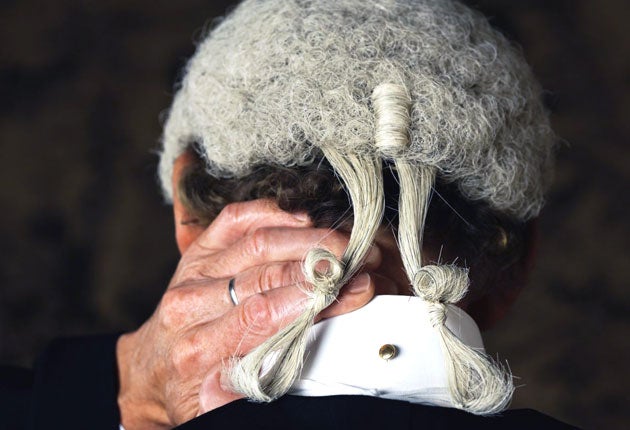Police accused of preventing suspects accessing lawyers

Your support helps us to tell the story
From reproductive rights to climate change to Big Tech, The Independent is on the ground when the story is developing. Whether it's investigating the financials of Elon Musk's pro-Trump PAC or producing our latest documentary, 'The A Word', which shines a light on the American women fighting for reproductive rights, we know how important it is to parse out the facts from the messaging.
At such a critical moment in US history, we need reporters on the ground. Your donation allows us to keep sending journalists to speak to both sides of the story.
The Independent is trusted by Americans across the entire political spectrum. And unlike many other quality news outlets, we choose not to lock Americans out of our reporting and analysis with paywalls. We believe quality journalism should be available to everyone, paid for by those who can afford it.
Your support makes all the difference.Defendants are being denied a fair trial because police pressure deters them from being represented by a lawyer after their arrest, a survey reveals today.
Solicitors questioned by the National Audit Office (NAO) say they believe that the reason half of all suspects do not use their free services is a direct result of the action – or inaction – of the police. This is partly confirmed by further research in the NAO report which finds that solicitors "can experience barriers to accessing their clients" at the police station. Between April and October last year 29 per cent of calls from legal advisers working for the Legal Services Commission went unanswered. Under the Police and Criminal Evidence Act 1984 the police must inform anyone detained at a police station of their right to a solicitor.
Last night the Law Society warned that police failings jeopardise defendants' right to a fair trial. A spokesman said: "It is very disturbing that half of suspects in police stations don't make use of solicitors providing advice for them. It is even more disturbing that 31 per cent do not recall being advised that they have the right to free advice, and that many solicitors consider that it is because of pressure by the police."
She added: "It is also concerning [that suspects are] so confused as to their rights in the police station. Suspects at this stage are in a vulnerable and uncertain state. Proper advice from a solicitor can make all the difference to the future conduct of a case. A solicitor will be able to assist the innocent or provide robust advice to the guilty."
The Commission's own research suggests that another reason for the low take up of legal assistance at police stations is a suspect's preference to be unrepresented at this stage of the criminal justice system. "It [the Commission] found this is not necessary because people do not know their right, but suspects do not always choose to take advice, because, for example, they may already know the criminal justice system well," said the NAO.
The NAO's survey of solicitors also reveals tensions in the relationship between the profession and the Legal Services Commission, which authorises legal aid payments. More than a third of solicitors perceive the commission "unhelpful" and almost the same number believe that it does not fully understand the legal system, although firms were more positive about the knowledge of the commission's local relationship managers.
The NAO's report also shows that there are flaws in the way the commission administers and procures legal aid that may result in higher prices being paid. In 2008-09, it spent more than £1.1bn on criminal legal aid – legal assistance for people suspected of or charged with a criminal offence.
Join our commenting forum
Join thought-provoking conversations, follow other Independent readers and see their replies
Comments